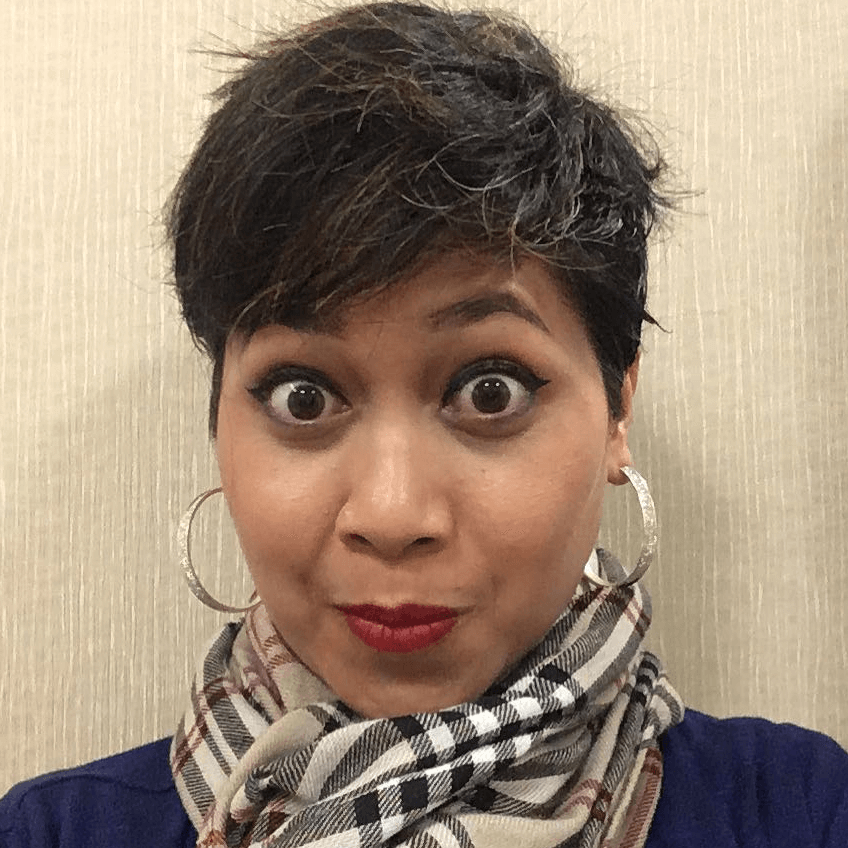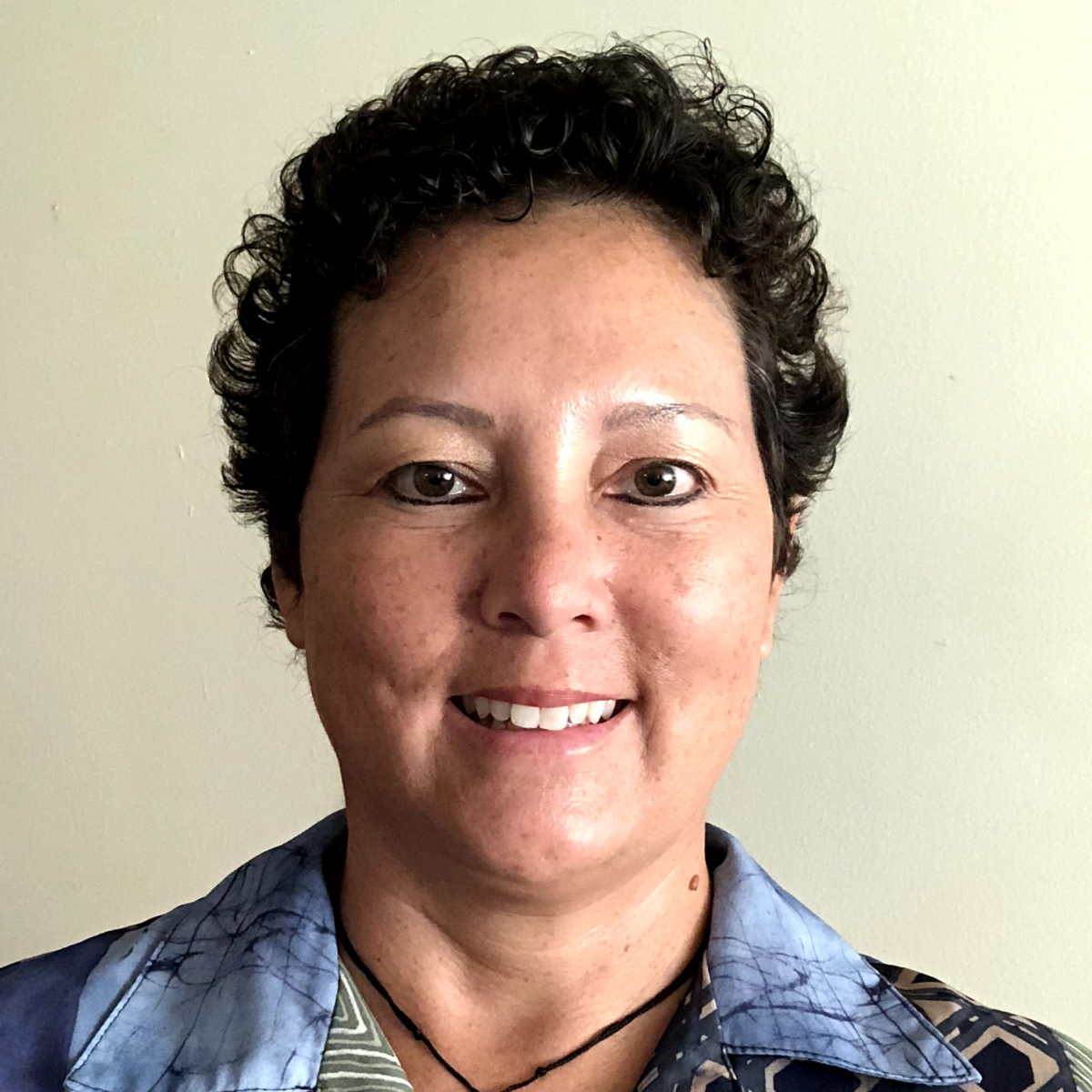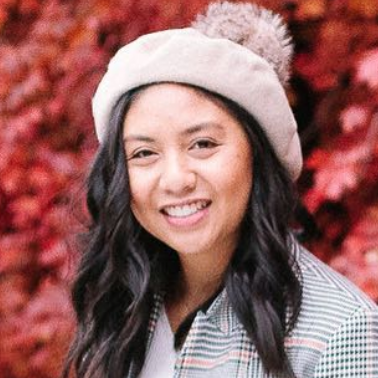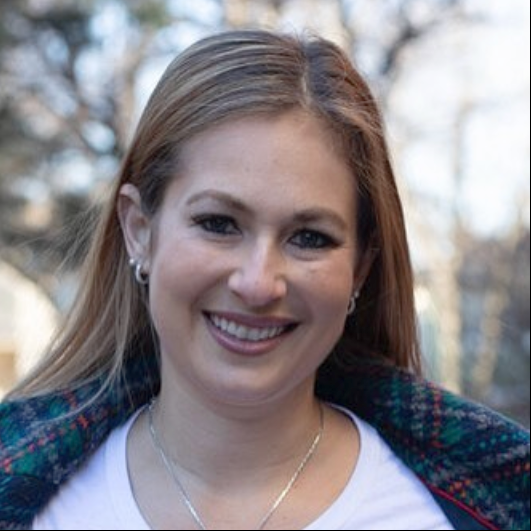Caitlin’s Stage 2B IDC, ER+, PR+ Breast Cancer Story
Caitlin shares her stage 2B ER+ PR+ breast cancer story, diagnosed after finding a lump in her breast. She describes undergoing a lumpectomy, chemotherapy, radiation, and hormone therapy.
In her story, Caitlin also highlights her experience with fertility preservation, the impact on her relationship with her boyfriend-turned -husband, and dealing with the financial toxicity of paying for cancer treatment.
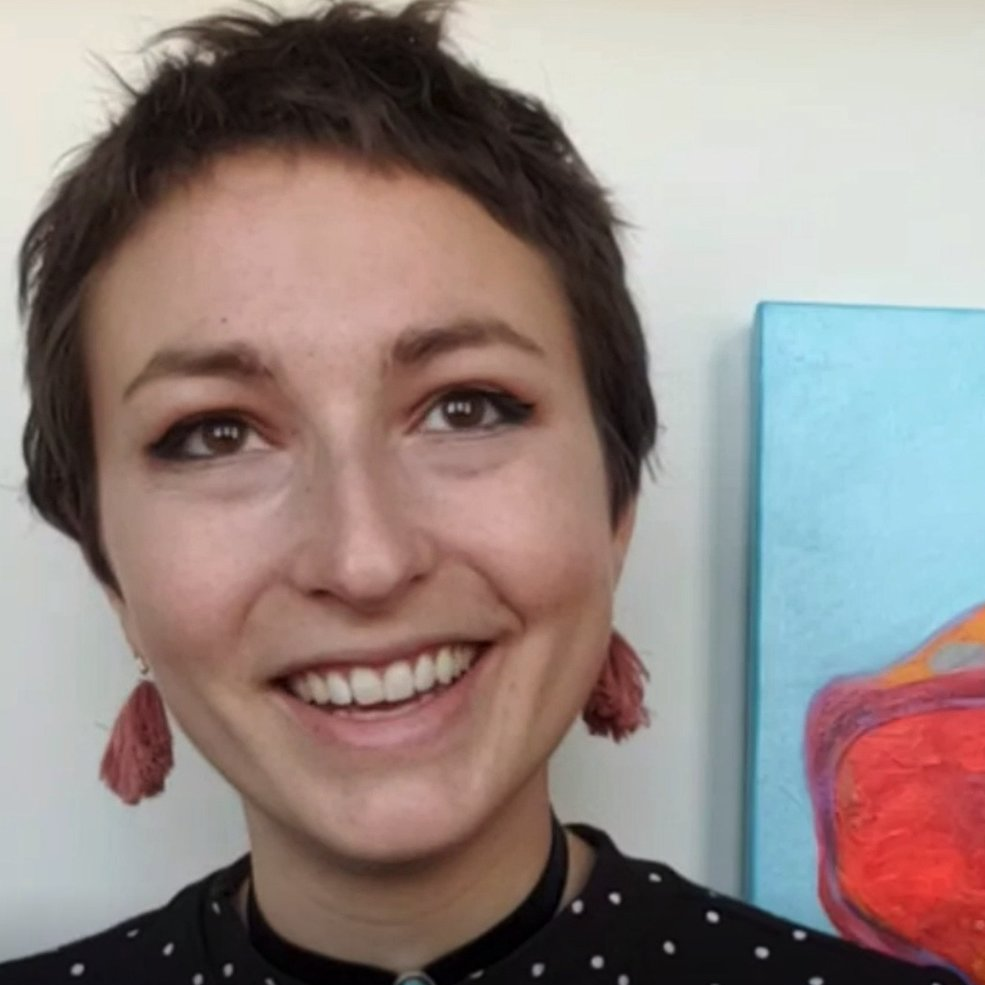
- Name: Caitlin J.
- Diagnosis:
- Breast cancer
- Invasive Ductal Carcinoma
- ER+
- PR+
- Staging: 2B
- 1st Symptoms: Lump found in breast
- Treatment:
- Surgery
- Breast conservation lumpectomy
- Lymph node removal
- Chemotherapy
- Adriamycin & cyclophosphamide (Cytoxan) (AC), 4 rounds over a 2-month period
- Taxol, 12 rounds over a 3-month period
- Radiation
- 33 treatments over 5 weeks
- Hormone therapy
- Lupron
- Injected once a month
- Anastrozole, taken orally daily
- Lupron
- Surgery
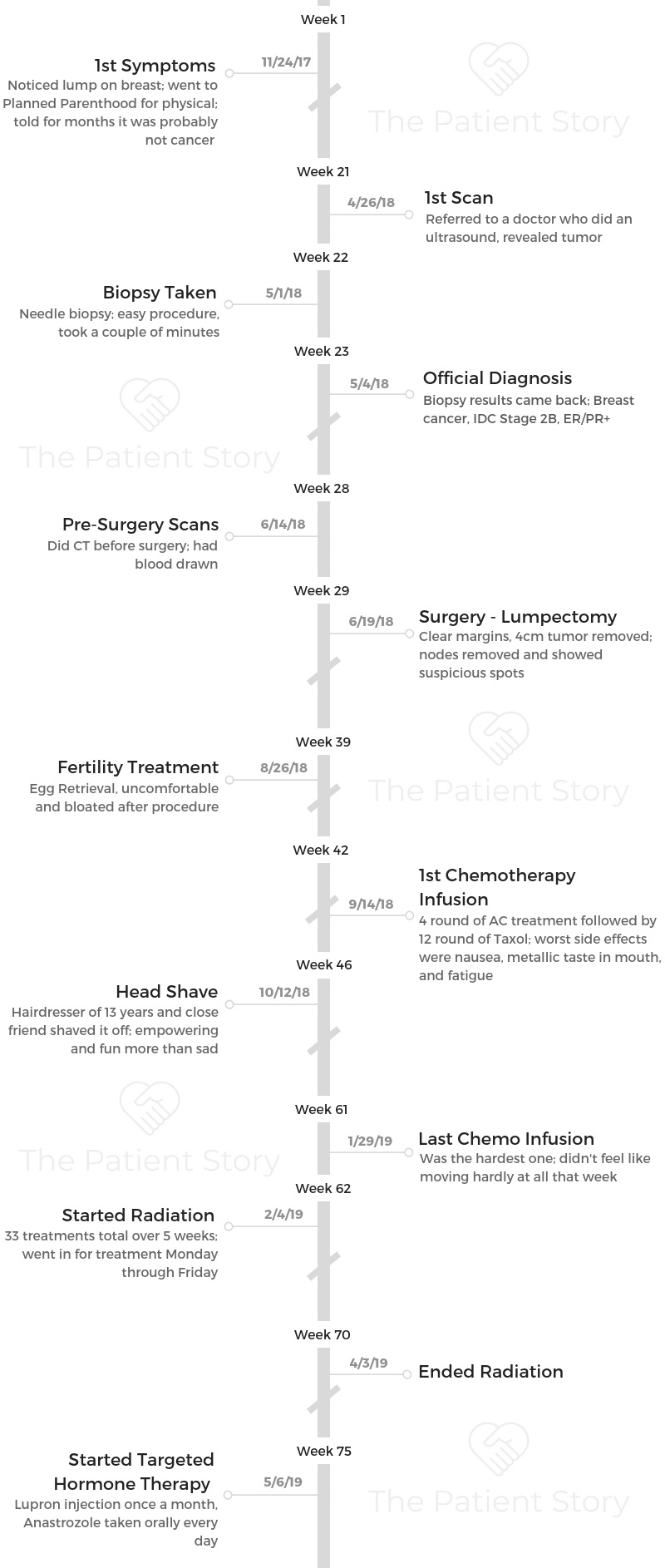
Give yourself a lot of compassion. Go easy on yourself. That’s something I wish someone would’ve told me.
I would feel guilty sometimes if I didn’t leave my house while I was doing chemo. I would feel miserable if I wasn’t up walking around. I would make myself feel bad for not doing something that I physically didn’t feel well enough to do.
That’s one thing I really learned post-treatment: I’m too hard on myself.
Caitlin J.
- Diagnosis
- Treatment Decisions
- Lumpectomy
- Chemotherapy
- Radiation
- Hormone Therapy
- Support & Survivorship
- How important was it for you to have caregivers around?
- The hardest part of the experience
- What helped you deal with the hardest emotions?
- Is there anything you wish you had known about the process going into it?
- Your "new normal"
- Cancer's impact on your relationship with your spouse
- What advice do you have for other patients as far as navigating their relationship during treatment?
- Do you have a message for newly diagnosed patients?
This interview has been edited for clarity. This is not medical advice. Please consult with your healthcare provider for treatment decisions.
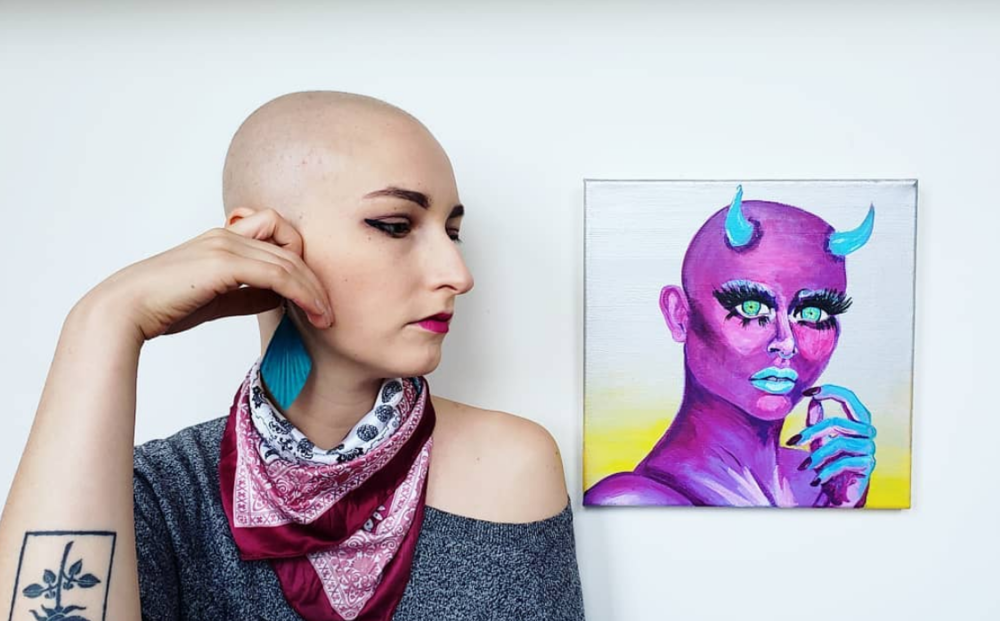
Diagnosis
What were your first symptoms?
I first noticed a lump one day. I was giving myself a stress shoulder massage. At first, I wasn’t really worried.
After a couple of days, it became the only thing on my mind. There wasn’t any pain. It was just the lump.
What were the first appointments like?
I didn’t have health insurance, so I went into Planned Parenthood, and it was just a physical touch exam to see if I needed a referral to see a physician. She determined that I need to be referred.
Then I went in and got a mammogram. They looked at it and saw that there was a mass. A couple of days after the mammogram, I had a biopsy. That was pretty quick and painless.
It was a little tender afterwards. I got the results that following Monday, so there was only a 3-day window of not knowing.
Processing the diagnosis
It was a very formal appointment run by a nurse. I call her my cancer concierge. She directs me to the right places and answers any questions I have.
I was really lucky because I was going to go to the appointment by myself, but my mom called out of the blue. I had been keeping it from my family because I didn’t know what it was, but I broke down crying and told her what was going on. She came to the appointment with me.
»MORE: Reacting to a Cancer Diagnosis
I remember being in shock the whole time. My mom was crying, but I wasn’t.
I was 29 and in good health. I just couldn’t believe that this was happening to me. It was an utter shock.
How did you break the news to your loved ones?
I had my mom tell my dad. It’s not an easy thing to do. I told my husband immediately. We were just dating at the time. I called him and told him what was happening. He left work and came home.
With everyone else, I just let my mom tell them because it’s not an easy thing to do. It really helped to have her as a buffer.
Cancer is a very emotionally charged life event that some people have to go through. It’s really painful to see your loved ones worry about it.
»MORE: Breaking the News to Family and Friends
Treatment Decisions
Did you get a second opinion?
I didn’t get any second opinions about the cancer. I did get a second opinion about whether or not I needed chemotherapy, though.
After my surgery, which was a lumpectomy, I had 3 of my lymph nodes removed. One of them came back showing that there was cancer in it.
I saw an oncologist at UCSF and got her opinion about my chemo treatment, and I got a second opinion from a different oncologist. Both said the same thing, so I went forward with the chemo.
Were there any moments where you had to advocate for yourself during treatment?
In the very beginning, when I found the lump, I did not have health insurance. Because of my age, nurses and doctors were not taking me seriously.
At the first exam I had at Planned Parenthood, the doctor told me to wait 1 or 2 period cycles before worrying. She said it could just be caused by my cycle.
In retrospect, I realize how ridiculous that is. You should never say that to someone when it comes to the possibility of cancer.
When I would make appointments, I had a lot of nurses say, ‘Are you sure you want to do this? Because you don’t have health insurance.’
It was a nightmare navigating the system to even get to my diagnosis appointment.
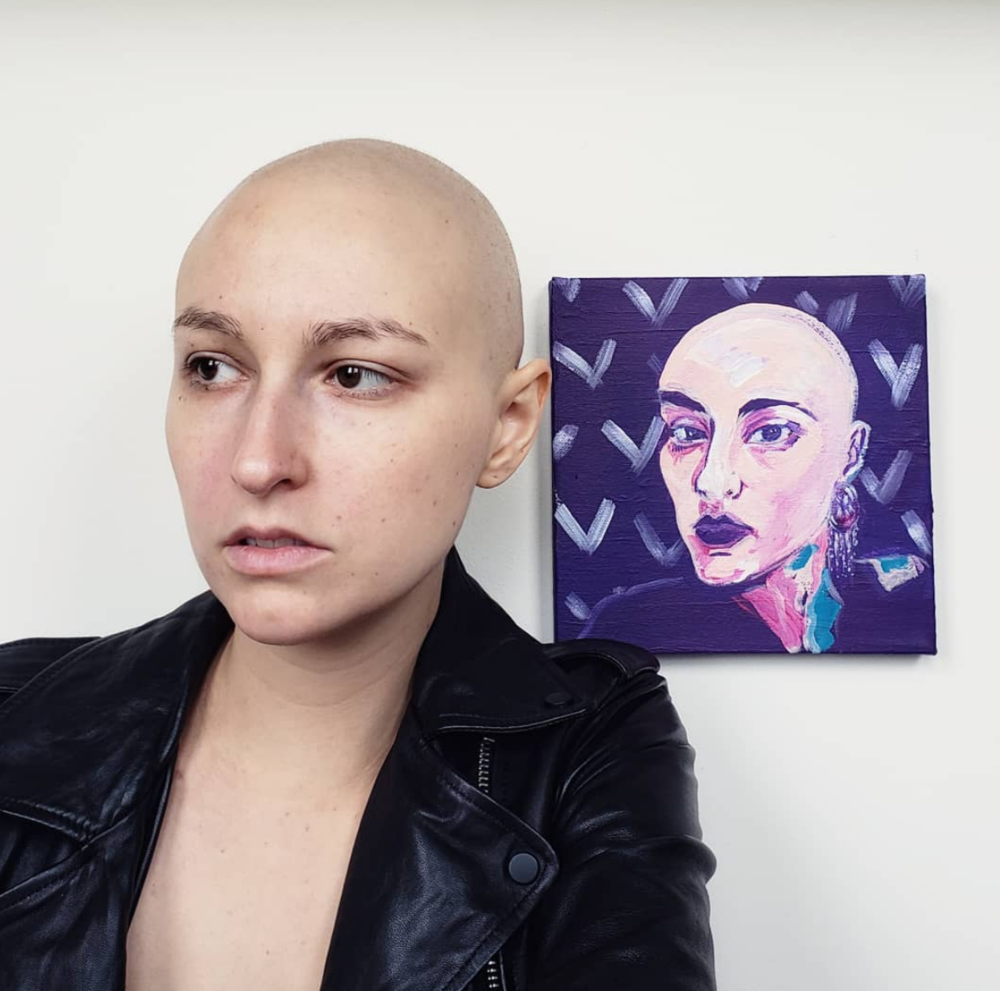
There isn’t really any financial support for women under the age of 40 who think they might have breast cancer. I was on my own in a lot of ways.
I had to pretty much demand an appointment because I was being pushed around a bit by the system.
My advice to anyone out there is don’t be timid. Trust your instincts. If your body is telling you that something is wrong, listen to it.
»MORE: How to be a self-advocate as a patient
How did you decide between a lumpectomy and a mastectomy?
It was a conversation between me and my surgeon. She doesn’t do lumpectomies on anything larger than 5 or 6 centimeters, so I was just in the range of qualifying for that.
Ultimately, it came down to the intensity of the surgery. The lumpectomy was going to be easier on me and my body.
I also didn’t test positive for the BRCA gene, meaning it’s not something that’s hereditary. It’s environmental. Therefore, I made the decision to keep my breast.
Financial toxicity: paying for cancer treatment
Cancer is expensive. It doesn’t really matter if you have great health insurance or not. There will always be something that will add up.
Through my chemo, I was also doing herbal supplements, and that’s expensive.
Going to and from doctor’s appointments, you’re either paying for parking or paying for your transportation. On top of your medical bills, all these unexpected expenses were popping up. It was not an affordable journey, to say the least.
Luckily, I’d been getting a lot of support through my family. My mom would drive me to a lot of my appointments. That was a big help.
Little things here and there, like my aunts would send me gift cards for groceries. That was incredible because when you’re spending so much money on other aspects of your health, you can neglect simple areas like your diet.
My mom would come clean the house, so we didn’t have to get a house cleaner and spend money that way. There was no way I was going to be able to do stuff like that.
Describe the process of fertility preservation
I did 1 round of egg retrieval. Honestly, I think that was harder than my first week of chemo psychologically. I’m not a big fan of needles, and you basically spend a month injecting yourself with hormones. Even thinking about it gives me the chills.
The procedure really isn’t fun. You’re uncomfortable and bloated afterwards. The lead up to the procedure where you’re giving yourself your own shots, I want to be optimistic about that.
But honestly, it was absolute mental torture for me. I cannot stand needles, and I really had to buck up.
»MORE: Fertility preservation and cancer treatment
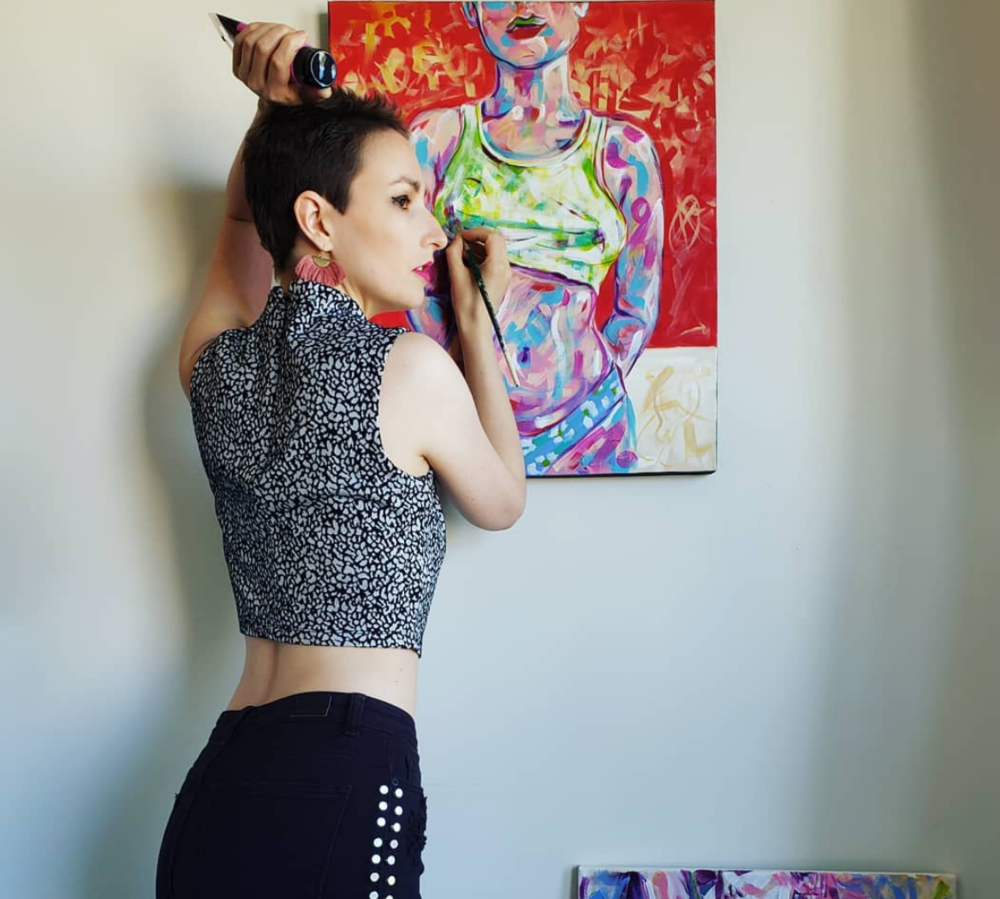
Lumpectomy
What do you remember from waking up after the lumpectomy?
I woke up, and my aunt and my mom were there. When I was feeling a little better, my mom went out to get the car and left me in the room with my aunt.
I was pretty high on anesthesia, and I decided that was the moment to tell my aunt the most embarrassing moment of my life.
I followed it up with a motivational speech about how thankful I was for all the women who had come before me, because they really paved the way to make my treatment possible.
In the U.S. until the 90s, health insurance didn’t cover reconstruction for women. The standard procedure was a mastectomy and no reconstruction.
Living in today’s day and age, where women have fought to have reconstruction covered, makes insurance companies a lot more hesitant to want to do a mastectomy because they have to pay for reconstruction.
So, that was it. I went on a thankful rant about all the women who came before me.
»MORE: Read more patient experiences with surgery
What was surgery recovery like? Do you have any long-term hurdles?
My surgery was actually pretty easy. It was just a breast conservation lumpectomy. My tumor was 4 centimeters large. They were able to get clean margins during surgery. They did a really good job.
Everything looks normal and feels normal. My recovery time was pretty quick. I do have some girlfriends who had to have double mastectomies and reconstruction done, and it just makes my surgery look like a walk in the park.
As far as long-term side effects, I have some hardening of my breast tissue. It’s nothing you can really see. It’s just something to touch. I have some limited range of mobility in my arm. I can’t raise it all the way up.
Right after the surgery, there was some swelling. The pain was pretty manageable, though. Not too bad. I did have what’s called a hematoma, which is when the blood start pooling.
That had to be drained, and that was super gross. My side effects were pretty minimal after surgery. I was very lucky.
Chemotherapy
AC-Taxol chemo regimen
I did 4 rounds of AC treatment over a 2-month period, which was very intense. Then I did 12 rounds of Taxol over a 3-month period.
The AC treatment was really tough. The first round went really well. I didn’t have a whole lot of side effects.
I did have a metal taste in my mouth, and I was sleepy, but I’m not sure how much of that was stress and how much was the chemo.
However, the next 3 rounds were progressively more and more difficult. The last round of the AC treatment was probably one of the hardest weeks of my life. I couldn’t do anything. I couldn’t walk without getting nauseous.
The anti-nausea medicine they give you is very good, but it didn’t fix this weird constant metallic tingling I was getting.
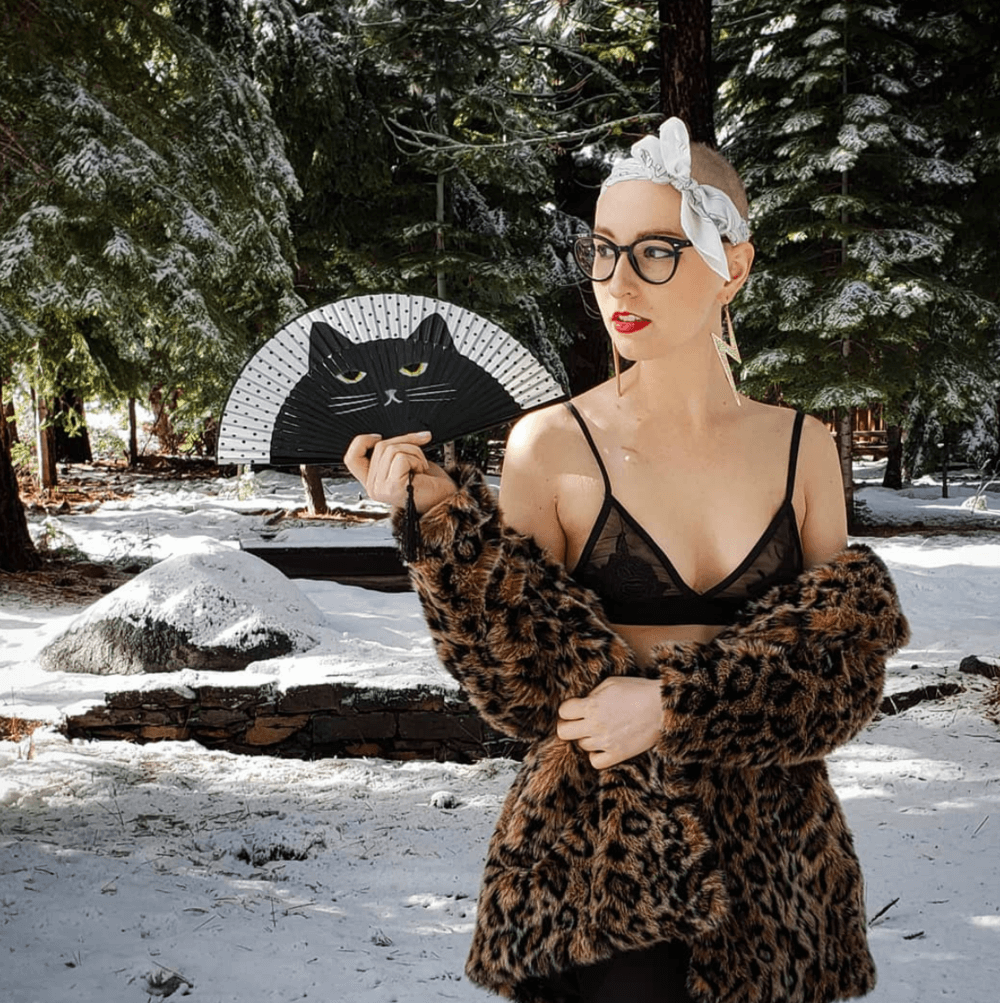
How did you deal with nausea from the chemo?
For me, when I was nauseous, I found that it was my body needing something. Either I was hungry and didn’t know I was hungry, or I was thirsty and didn’t know I was thirsty. Maybe I was even sleepy and didn’t know I was sleepy.
You’re on all this medication, and it throws your body out of whack. When I would get nauseous and it was too much for my anti-nausea medicine, it was usually as simple as drinking a glass of water or taking a couple of bites of a sandwich.
Describe the hair loss after chemo
I did [lose my hair], almost on the dot when my oncologist said I would. The AC treatments are separated by 2 weeks.
I had my first round of treatment. Almost exactly to the day of my second round of treatment, my hair was beginning to fall out.
It started to look very dull and flat. My actual scalp felt very tender and started hurting. The next day, when I was in the shower, chunks started falling out.
The hair falling out was pretty emotional. I cried. I expected to. When I went to shave my head, though, that was actually a fun experience.
I’ve been seeing the same hairdresser for 13 years, so it was an honor to have her be the one to shave my head. She’s become a good friend. It was more playful and empowering than tragic.
»MORE: Dealing with hair loss during cancer treatment
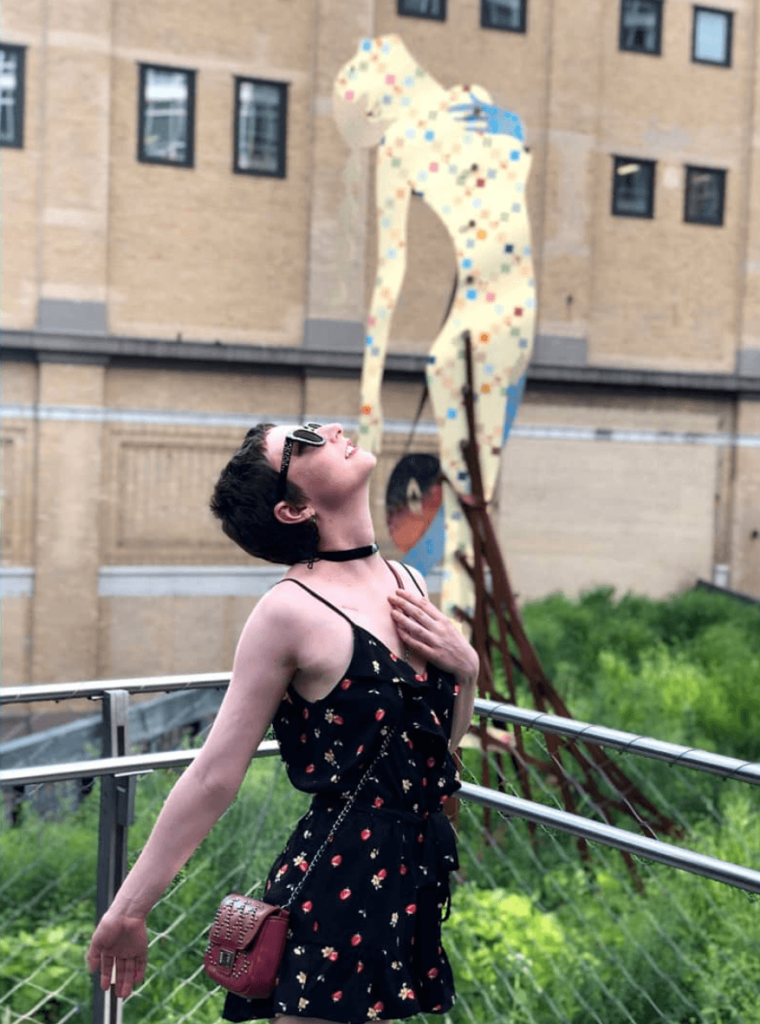
Radiation
What was radiation like?
I did 5 weeks of radiation — 33 treatments.
I feel like kind of a psychopath when I say this, but I really enjoyed radiation. I feel like it was just such a structured routine.
I would go Monday through Friday. Every day I’d be at the doctor’s office by 9 a.m. It just filled in this well-needed structure of routine that cancer had wiped out.
Physically, it wasn’t fun, but it’s quick. You’re really only going through each treatment for 10 to 15 minutes. It kind of feels like a weird, tingly sunburn.
By the end of the 33 treatments, the area was really tender to the touch. Compared to chemo, it was a walk in the park.
Radiation therapy side effects
At about week 2, I got really tired. I came out of chemo with all this energy and enthusiasm. I had a couple of weeks off where I wasn’t having anything done at all. I was able to start exercising again.
At that 2-week point during radiation, that fatigue came back, and it came back pretty hard. That last week of radiation, I was probably as tired as I was during chemotherapy.
However, with the radiation, because I didn’t have the nausea like I did with chemo, I was able to stay active. I can’t even express how much that helped.
Even just walking a couple of miles a day had a massive impact on my energy level.
Days when I couldn’t walk around, I could really see a difference. I just really recommend moving your body. Get that blood flowing, because it helps.
Hormone Therapy
What’s your hormone therapy like?
I’m on the anti-hormone therapy because my cancer cells respond to estrogen and progesterone. Normally, I think the typical medication is tamoxifen for women.
However, my oncologist said that there’s about the same level through another routine.
I’m doing Lupron and anastrozole. It’s a Lupron shot once a month and then Anastrozole tablets daily, kind of like birth control pills.
It puts me into a chemically-induced menopause like tamoxifen, only my ovaries are completely shut down, so my body isn’t making any eggs at all.
Have you experienced any side effects from it?
I all the sudden have a mustache. I’d never had that before. I’ve been having to keep up a new wax routine.
One side effect that I was really not excited about was a little bit of sexual dysfunction. I kind of lost my appetite for sex — and being a newlywed, that really sucks.
I also had some vaginal thinning as a result, because my body’s in menopause even though I’m 30 years old. It really made sex quite painful, and I had to seek treatment through a specialized OB/GYN.
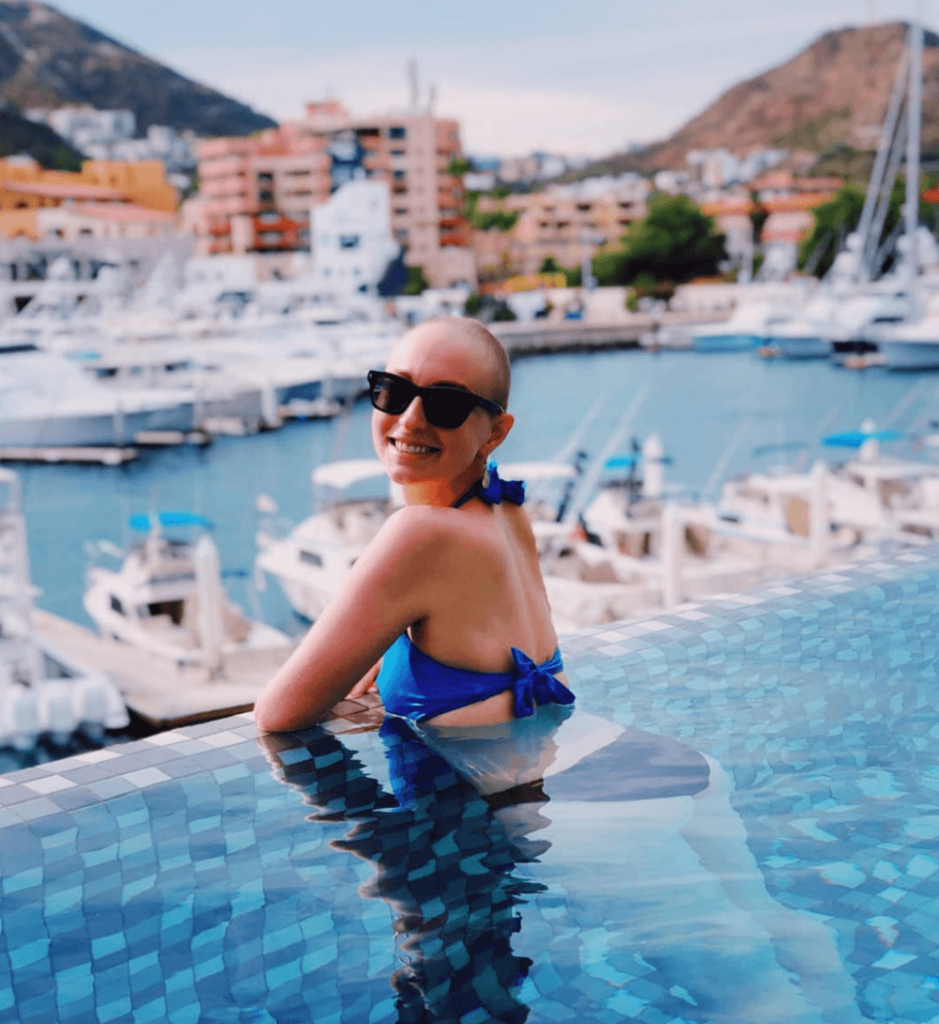
Support & Survivorship
How important was it for you to have caregivers around?
Very. It’s not so much about needing help with things. You do need help with things, but it’s more knowing that people are there for you that’s important.
Simple things would make such a big difference. My mom would come over and make dinner sometimes, and not having that pressure of worrying about dinner made such a difference. My aunt would send me letters in the mail.
Little things like that that let you know people are cheering for you are really important. It’s important for your mental health, but I also think it’s important for your physical health too.
Going through chemotherapy can feel really isolating and lonely. Having your caregivers around really helps you through the process both physically and mentally.
»MORE: What kind of support cancer patients say helped the most
The hardest part of the experience
I was really lucky in the sense that my family was very supportive through this. The lowest point I had was actually the day after my last radiation treatment when everything was done.
Throughout my entire treatment, I had focused on the end date as my bulls-eye. I put on my tunnel vision goggles and went at it. I didn’t see anything else in the world. Nothing else could bother me.
When I reached the finish line at the end of treatment, all these emotions I had been holding in came up to the surface at the same time. I had a complete breakdown.
I couldn’t stop crying for a couple of days. I really do think that that was my lowest point. You’d think because it was at the end it would be the highest point, but for me it wasn’t.
There’s also this loss that you feel when you’re going through treatment. Your community is so strong.
Then when you end treatment, it’s not that they disappear, but they’re not as present. Not knowing what post-cancer life was supposed to look like really hit me hard.
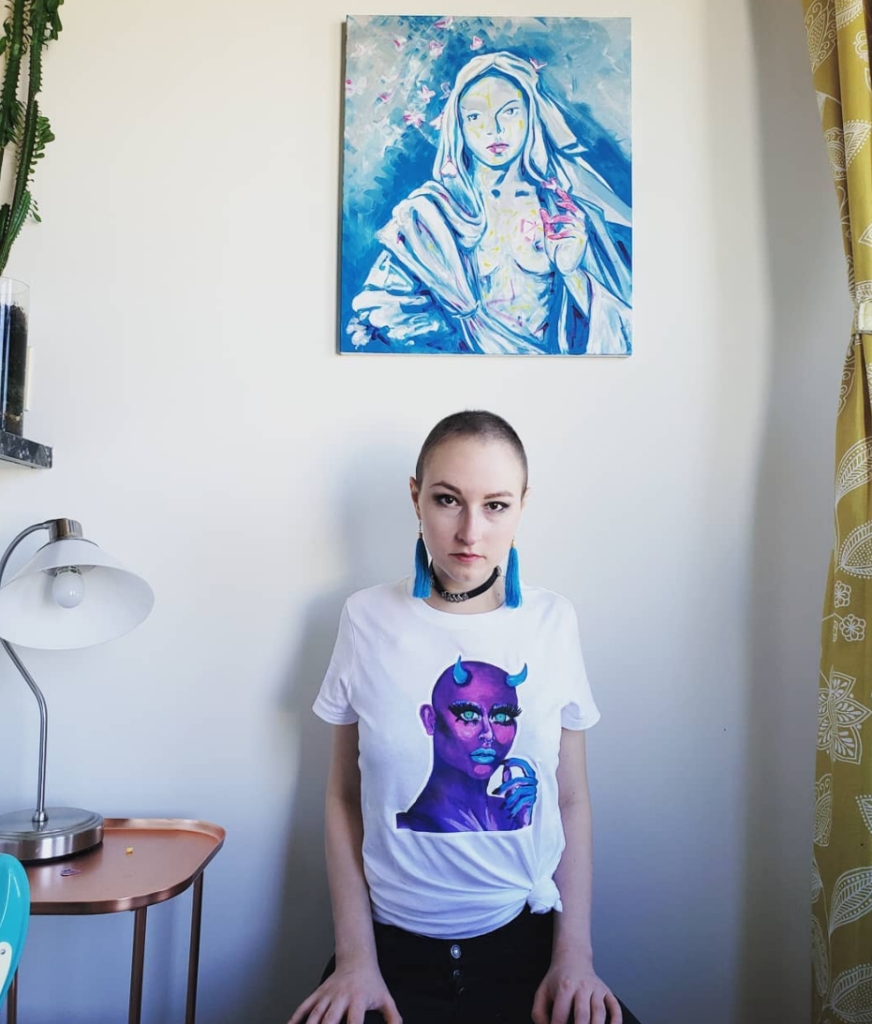
What helped you deal with the hardest emotions?
I’ve been going to therapy, and I find that that helps a lot. I’m part of a support group of young women who are surviving breast cancer. That helps an unbelievable amount.
I can’t recommend a support group enough. I’ve never been a part of one before this, but being able to talk to someone who has been through some of the same stuff and understands you is so healing.
I also really am getting a lot of help from my personal therapist. They’re just like emotional coaches.
When you’re recovering from an injury and an emotional injury like cancer, you need your trainer to get you back into shape.
Is there anything you wish you had known about the process going into it?
I wish I had been more prepared for post-cancer life and survivorship. I had beelined to the end of treatment so much that I didn’t know what to expect at the end. I wish I knew in advance that it wasn’t going to be a celebration.
I imagined it being like crossing a finish line with this big party, and I’d be so happy. It really took me for a loop because I was actually a little depressed and have needed to seek mental health services.
I wish I had known it was going to be so hard, because then I would have been prepared. The first month after treatment ended, I really neglected my mental health, and I suffered a lot. It was a really unnecessary suffering.
Your “new normal”
The new normal is — what is normal?
I don’t know if I’ve found it. Right now, I’m trying to find out how much of my identity to attribute to cancer.
I’m meeting new people now, and since my hair is coming back, they don’t know that I’ve been through cancer. How much do I disclose to people?
I’m an artist and work a lot with the female form and body. When I’m talking to my clients or prospective buyers, how much of that do I talk about? The new normal is finding my normal.
It’s kind of been an interesting journey of me creating boundaries emotionally and deciding which parts of my life cancer controls and which parts I have control over now.
Cancer’s impact on your relationship with your spouse
It was very difficult. It fast-tracked my relationship. When I was diagnosed, my husband was just my boyfriend. We were in a mentality of “head over heels in love, but we’ll never get married,” because we don’t believe in the system.
When I received my diagnosis, I was really struggling with the health care system, supporting myself on my own, having to go down to part-time, and all that. I live in the Bay Area, and rent is no laughing matter.
Going down to part-time was going to be impossible without moving in together, and we also made the decision to get married.
That sped up our relationship and pushed it in a direction I don’t think we had planned on going. It also took an emotional toll on him. He struggled with work. He went through a sort of depression.
Even through recovery, he’s going through his own emotional recovery very similar to mine, but different. He was there the whole time throughout the cancer.
He’s like the unsung hero — part of the support network. They suffer a lot, too, and they don’t get the recognition they deserve.
What advice do you have for other patients as far as navigating their relationship during treatment?
Communication. My husband and I have what we call “Babe’s Hour” in the evenings, where we sit down after our day and talk about what has been going on in our lives.
We refresh the relationship and tell each other how much we love each other.
Having this very intimate and personal time reserved for communication is what made this relationship possible through such a traumatic time.
Communication is important, but so is space. It was really hard for me to continue to watch him live his life while I had to put mine on pause. I had to learn how to give him his space through this.
»MORE: 3 Things To Remember If Your Spouse/Partner Is Diagnosed With Cancer
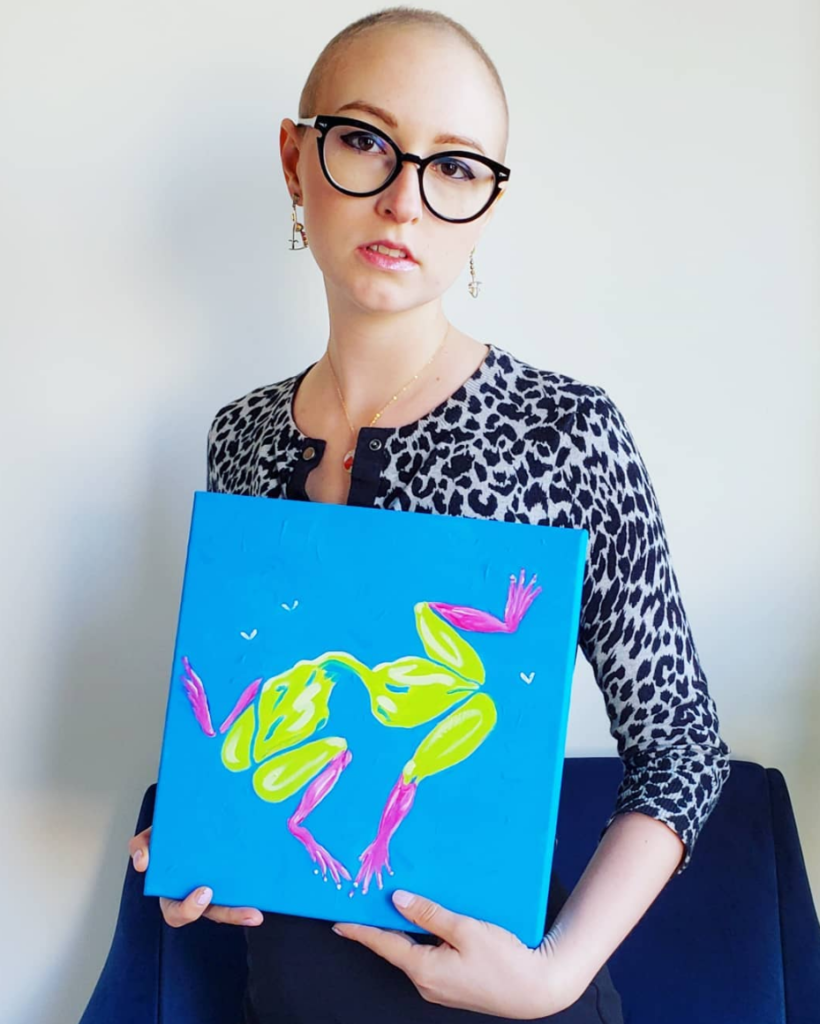
Do you have a message for newly diagnosed patients?
Give yourself a lot of compassion. Go easy on yourself. That’s something I wish someone would’ve told me.
I would feel guilty sometimes if I didn’t leave my house while I was doing chemo. I would feel miserable if I wasn’t up walking around. I would make myself feel bad for not doing something that I physically didn’t feel well enough to do.
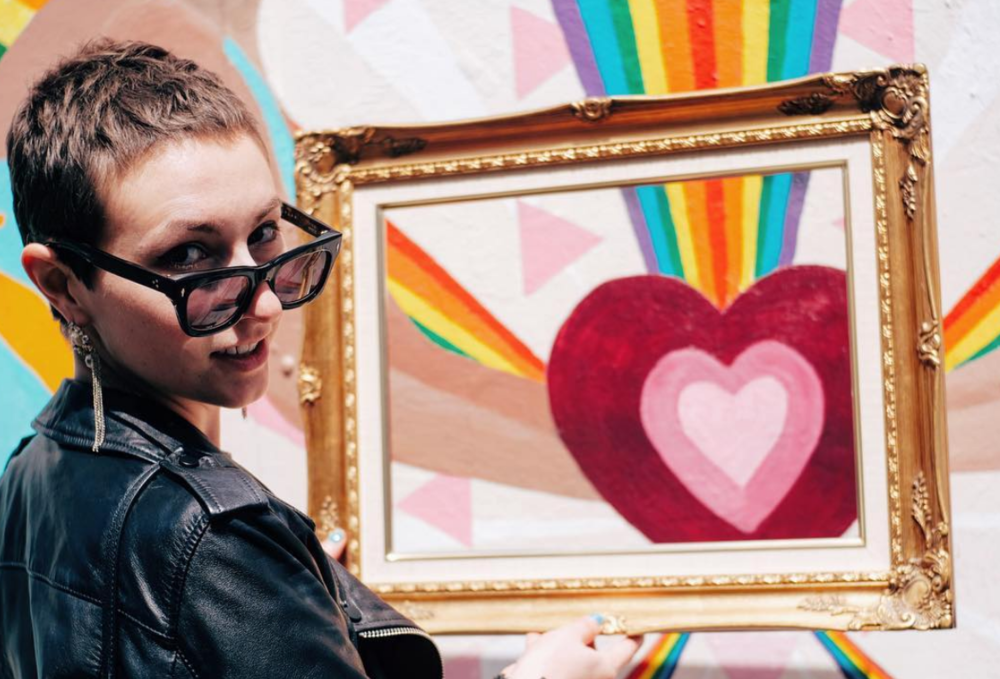
That’s one thing I really learned post-treatment: I’m too hard on myself. I think a lot of women have that same mentality where they feel guilty because they’re not contributing the way they were before. It can really eat you up.
I recommend actively practicing self-compassion. Take some moments out to treat yourself. When that negative voice in your head says you’re a failure, stop and remind yourself that you’re not.
Remind yourself that you’re going through a lot, and you don’t have to be perfect.
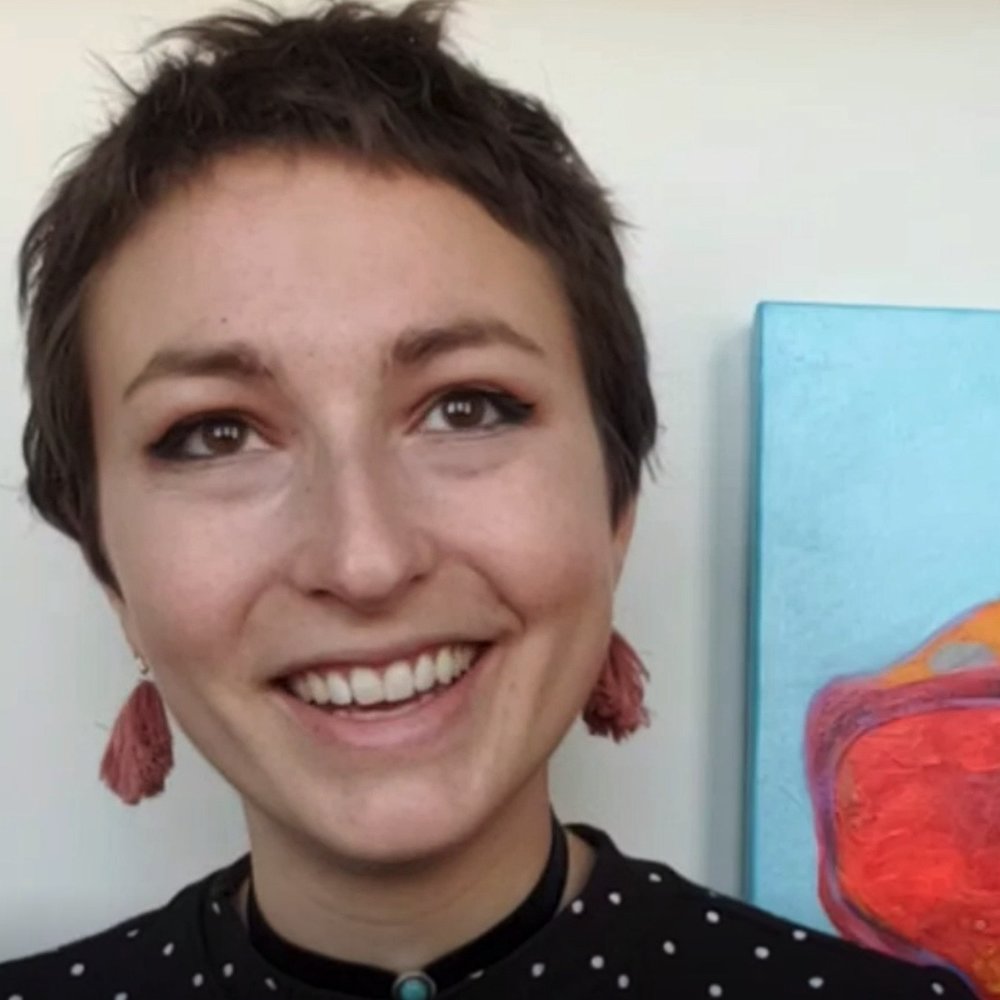
Inspired by Caitlin's story?
Share your story, too!
Invasive Ductal Carcinoma Stories
Amelia L., IDC, Stage 1, ER/PR+, HER2-
Symptom: Lump found during self breast exam
Treatments: TC chemotherapy; lumpectomy, double mastectomy, reconstruction; Tamoxifen
Rachel Y., IDC, Stage 1B
Symptoms: None; caught by delayed mammogram
Treatments: Double mastectomy, neoadjuvant chemotherapy, hormone therapy Tamoxifen
Rach D., IDC, Stage 2, Triple Positive
Symptom: Lump in right breast
Treatments: Neoadjuvant chemotherapy, double mastectomy, targeted therapy, hormone therapy
Caitlin J., IDC, Stage 2B, ER/PR+
Symptom: Lump found on breast
Treatments: Lumpectomy, AC/T chemotherapy, radiation, hormone therapy (Lupron & Anastrozole)
Joy R., IDC, Stage 2, Triple Negative
Symptom: Lump in breast
Treatments: Chemotherapy, double mastectomy, hysterectomy
